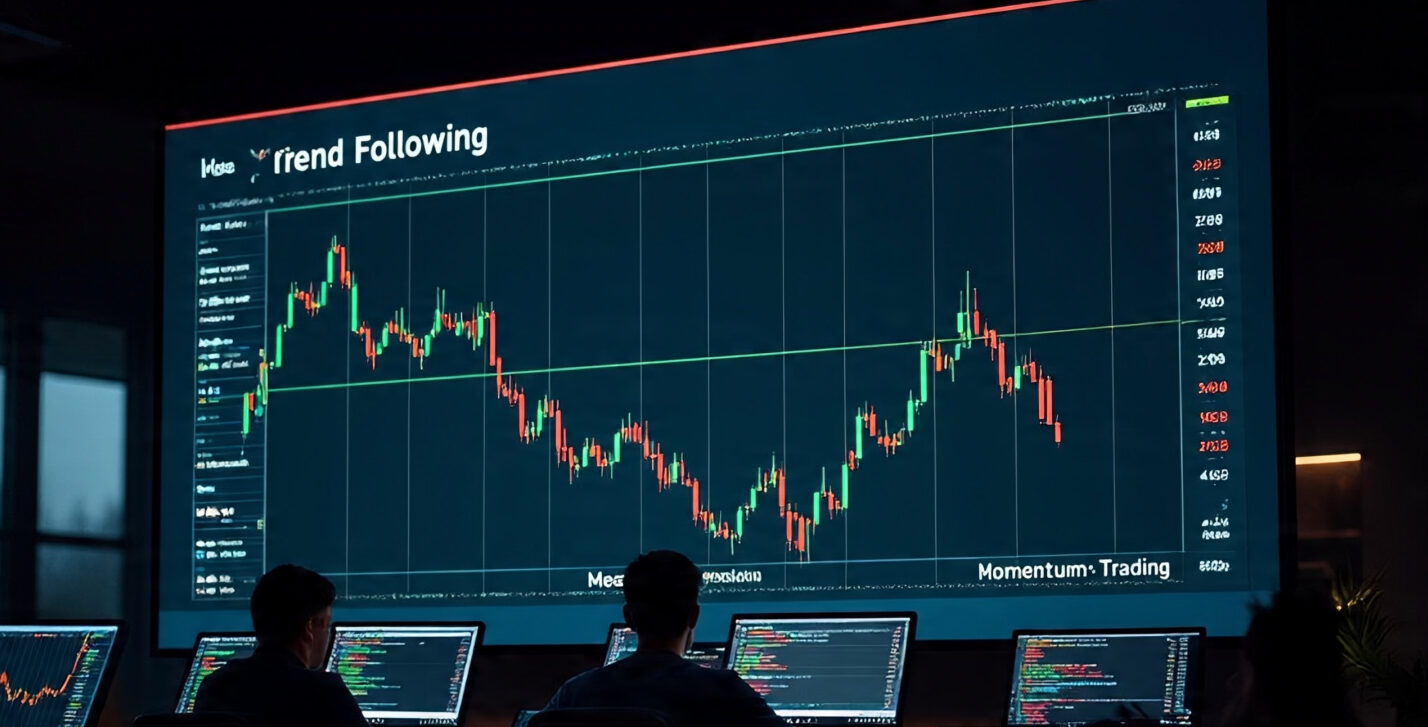The cryptocurrency market has exploded into a multi-trillion-dollar industry and finding the right has become crucial for both beginners and experienced traders. Whether you’re looking to buy your first Bitcoin or execute complex trading strategies, selecting a reliable can make the difference between profitable trades and costly mistakes.
With hundreds of exchanges available worldwide, navigating this landscape requires careful consideration of factors like security, fees, available cryptocurrencies and trading features. This comprehensive guide will help you everything you need to know about choosing the perfect crypto trading platform for your trading goals.
What is a Crypto Trading Platform?
A crypto trading platform, also known as a exchange, is a digital marketplace where users can buy, sell and trade various cryptocurrencies. These platforms serve as intermediaries that facilitate transactions between buyers and sellers, providing the necessary infrastructure for secure.
Modern cryptocurrency exchanges offer much more than basic trading functionality. They provide advanced charting tools, portfolio management features, educational resources and various order types to help traders execute their strategies effectively. Some platforms also offer additional services like staking rewards, lending programs and access to decentralized finance (DeFi) protocols.
Types of Cryptocurrency Exchanges
Centralized Exchanges (CEX) Centralized exchanges are the most common type of. These platforms are operated by companies that maintain control over user funds and facilitate all transactions. Popular centralized exchanges include Binance, Coinbase and Kraken.
Decentralized Exchanges (DEX) Decentralized exchanges operate without a central authority, allowing users to trade directly with each other through smart contracts. Examples include Uniswap, SushiSwap and PancakeSwap. Hybrid Exchanges These platforms combine features of both centralized and decentralized exchanges, offering the security benefits of DEX with the user experience of centralized platforms.
Key Features to Look for in a Crypto Trading Platform
Security and Regulatory Compliance
Security should be your top priority when choosing a exchange. Look for platforms that implement industry-standard security measures, including two-factor authentication (2FA), cold storage for funds and regular security audits. The best platforms also maintain proper regulatory compliance in their operating jurisdictions.
Essential Security Features:
- Multi-signature wallets
- SSL encryption
- Insurance coverage for digital assets
- Regular penetration testing
- Compliance with local financial regulations
Trading Fees and Cost Structure
The fee structure is crucial for profitable trading. Most exchanges charge trading fees as a percentage of your transaction volume, typically ranging from 0.1% to 1% per trade. Some platforms offer reduced fees for high-volume traders or when using their native tokens.
Common Fee Types:
- Trading fees (maker and taker fees)
- Deposit and withdrawal fees
- Network fees for blockchain transactions
- Premium feature subscription costs
Available Cryptocurrencies and Trading Pairs
The variety of supported cryptocurrencies can significantly impact your trading opportunities. While major platforms support hundreds of digital assets, newer or smaller exchanges might have limited selections. Consider whether the platform offers the specific cryptocurrencies you want to trade.
User Experience and Interface Design
A well-designed user interface makes trading more efficient and reduces the likelihood of costly mistakes. Look for platforms that offer both beginner-friendly interfaces and advanced trading views for experienced users.
Best Crypto Trading Platforms in 2025

Top-Rated Cryptocurrency Exchanges
Binance Binance remains one of the world’s largest cryptocurrency exchanges by trading volume, offering over 600 cryptocurrencies and advanced trading features. The platform provides competitive fees, extensive educational resources and innovative products like futures trading and staking rewards. Coinbase Known for its user-friendly interface and strong regulatory compliance, Coinbase is an excellent choice for beginners. The platform offers both basic and advanced trading interfaces, making it suitable for traders of all experience levels.
Kraken Kraken has built a reputation for security and reliability over its decade-long operation. The exchange offers margin trading, futures contracts and one of the most comprehensive selections of cryptocurrency trading pairs. KuCoin KuCoin provides access to a vast array of altcoins and offers competitive trading fees. The platform is particularly popular among traders looking for newer cryptocurrency projects and innovative DeFi tokens.
Mobile Trading Applications
Modern crypto trading platforms offer sophisticated mobile applications that provide full trading functionality on smartphones and tablets. These apps include real-time price charts order execution capabilities, portfolio tracking and push notifications for price alerts.
How to Get Started with Cryptocurrency Trading
Account Creation and Verification
Setting up an account on a crypto trading platform typically involves providing personal information and completing identity verification procedures. This Know Your Customer (KYC) process is required by most reputable exchanges to comply with anti-money laundering regulations.
Verification Requirements:
- Government-issued photo ID
- Proof of address
- Phone number verification
- Email confirmation
- Additional documentation for higher withdrawal limits
Funding Your Trading Account
Most platforms offer multiple methods for depositing funds, including bank transfers, credit cards, debit cards and cryptocurrency deposits. Bank transfers usually offer the lowest fees but may take several days to process, while card payments are instant but come with higher fees.
Placing Your First Trade
Once your account is funded, you can start trading cryptocurrencies. Begin with small amounts to familiarize yourself with the platform’s interface and trading mechanics before committing larger sums.
Advanced Trading Features and Tools
Order Types and Trading Options
Professional offer various order types to help traders execute sophisticated strategies: Market Orders Execute trades immediately at current market prices, providing quick entry and exit from positions. Limit Orders Allow traders to set specific prices for buying or selling, providing better price control but no guarantee of execution.
Stop-Loss Orders Automatically sell positions when prices reach predetermined levels, helping limit potential losses. Margin Trading Enables traders to borrow funds to increase their position sizes, amplifying both potential profits and losses.
Technical Analysis Tools
Advanced cryptocurrency exchanges provide comprehensive charting tools and technical indicators to help traders analyze market trends and make informed decisions. These tools include moving averages, RSI indicators, MACD and candlestick pattern recognition.
API Integration and Algorithmic Trading
Many professional traders use Application Programming Interfaces (APIs) to connect their trading platforms with external tools and automated trading systems. This functionality allows for algorithmic trading strategies and advanced portfolio management.
Security Best Practices for Crypto Trading
Protecting Your Digital Assets
While exchanges have improved their security measures significantly, users must also take responsibility for protecting their funds. Implement these security practices to safeguard your investments: Enable Two-Factor Authentication Always activate 2FA on your trading accounts using authentication apps rather than SMS when possible.
Use Strong, Unique Passwords Create complex passwords that are unique to each platform and store them securely using password managers. Regular Security Audits Periodically review your account activities and security settings to ensure no unauthorized access has occurred.
Cold Storage Solutions
For long-term cryptocurrency holdings, consider transferring funds to cold storage solutions like hardware wallets. These devices keep your private keys offline, providing maximum security against online threats.
Regulatory Landscape and Compliance
Global Regulatory Developments
The regulatory environment continues to evolve rapidly across different jurisdictions. These regulations is crucial for choosing compliant trading platforms and ensuring legal trading activities. United States US-based exchanges must comply with FinCEN regulations and obtain proper licenses from state authorities. Platforms like Coinbase and Kraken maintain strict compliance standards.
European Union The EU’s Markets in Crypto-Assets (MiCA) regulation provides a comprehensive framework for cryptocurrency services, requiring exchanges to obtain proper authorization. Asia-Pacific Region Different countries in this region have varying approaches to cryptocurrency regulation, from strict bans to progressive regulatory frameworks.
Trading Strategies for Different Market Conditions

Bull Market Strategies
During upward trending markets, traders often focus on momentum strategies and long-term position holding. Popular approaches include dollar-cost averaging and trend following techniques.
Bear Market Navigation
Bear markets require defensive strategies such as short selling, hedging positions and focusing on stablecoin trading pairs to preserve capital.
Sideways Market Tactics
Range-bound markets present opportunities for arbitrage trading and using technical analysis to identify support and resistance levels.
Common Mistakes to Avoid
Emotional Trading Decisions
One of the biggest pitfalls for cryptocurrency traders is making decisions based on emotions rather than analysis. Successful trading requires discipline and adherence to predetermined strategies.
Inadequate Risk Management
Many novice traders fail to implement proper risk management techniques, such as position sizing and stop-loss orders, leading to significant losses.
Platform Security Neglect
Ignoring security best practices can result in stolen funds and compromised accounts. Always prioritize security over convenience.
Future of Crypto Trading Platforms
Emerging Technologies and Trends
The industry continues to innovate with developments in artificial intelligence, machine learning and blockchain technology. These advances are improving trading efficiency, security and user experience. DeFi Integration Many centralized exchanges are integrating decentralized finance protocols to offer yield farming, liquidity mining and other DeFi services.
NFT Marketplaces Some platforms are expanding beyond traditional to include non-fungible token (NFT) marketplaces and digital collectibles. Social Trading Features Copy trading and social trading features allow users to follow and replicate the strategies of successful traders.
Conclusion
Choosing the right is a critical decision that can significantly impact your success. Consider factors like security features, trading fees, available cryptocurrencies, user interface design and regulatory compliance when evaluating different options. Remember that the best for you depends on your specific trading goals, experience level and geographical location.
Start your cryptocurrency trading journey today by researching the platforms mentioned in this guide and selecting one that aligns with your needs. Whether you’re a beginner looking for a user-friendly interface or an experienced trader requiring advanced features, there’s a designed to meet your requirements. Take the time to compare different options, read user reviews and consider starting with small amounts to test the platform’s functionality before committing significant funds.
Load More: Crypto Market Analysis 2025 Expert Insights, Trends & Price Predictions




